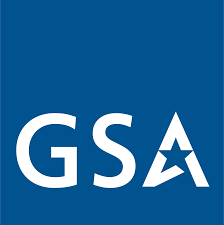

Leadership within the IRS' procurement office say they are working toward a culture change among their workforce, and earlier intervention with industry.
The Internal Revenue Service is close to releasing more information on tax checks and consents to disclosure, for companies looking to do business with the tax administration.
Per January 2017 rules, IRS cannot contract with tax delinquent corporations, explained Shanna Webbers, IRS chief procurement officer, during a July 27 IRS Industry Day held in New Carrollton, Md.
There will be time for public comment once the information is published in the Federal Register, and Webbers urged attendees that if they know there’s an outstanding tax liability with their business, make arrangements for some time of payment plan “or something so that we do have an opportunity to make the award.”
“We’re intending to release some information into the Federal Register as soon as we get the authority … so that it’s very clear what we’re trying to do and why we’re doing that,” Webbers said. “The only way we can talk to you to let you know that you’re ineligible for award is for that to be filled out properly.”
That feedback process and financial advice is part of a broader effort building in IRS’ procurement office “to be more collaborative and transparent” with the private sector, Webbers said during the industry day.
“We’ve heard industry, and what we’ve heard is that to do business with the IRS, you have to do business with the IRS,” Webbers said. “That’s something that we want to change. We recognize the value of our industry partners in our ability to be successful, our ability to know what capabilities are out there that can meet the solution needs of our business partners in the IRS and our other customers that we actually support.”
The industry day is part of a series of events the agency plans to regularly host, to connect with the private sector. IRS held a reverse industry day in April, at which small, medium and large industry partners spoke about their side of the procurement process and offered insight on things like how long a company actually needs to be able to submit a proposal, make a go/no-go decision, and the costs of submitting a proposal.
Harrison Smith, deputy chief procurement officer at IRS, said the industry day really helped IRS understand what companies go through and the costs associated with reviews and having to convince management to continue spending time and money on a project.
“As we put out things like requests for information that require time and resources to be expended by our industry partners, we want to make sure that they see the value in that,” Smith added. “We believe we really take the approach that is we help the market become more efficient if we reduce the churn, or radio silence. What we really allow folks to do is to spend more of their time, energy and effort on giving us cost-effective solutions to the problems that they’re aware of. So it’s really a win-win situation for everybody.”
One area where IRS is asking for industry solutions is its Future State plan, which aims to shift toward using more online accounts and fewer in-person services at the agency.
Jeffrey Wallbaum, senior adviser to the IRS’ deputy commissioner for services and enforcement, said the agency is looking into authentication, authorization and security protocols, in order to know “that you’re who you say you are.”
Wallbaum said those security measure also have to factor in that a majority of taxpayers use professional tax preparers or other third parties to help with their taxes.
“Those are important places where we’re looking for capabilities and we’re definitely going to need a lot of outside help for this,” Wallbaum said.
Dretha Barham, director of operations support for the IRS’ small business/self-employed division, said enforcement is an area where industry is already helping the agency.
Barham said within Future State plans, the IRS is exploring ways of early intervention for businesses who get behind on their taxes.
“We have a lot of data and analytics going on right now around the increase in early intervention,” Barham said. “The canvas teams that we have, we looked at realigning some of our telephone calls … could we have those handled by people who normally do balance due account information. We were able to look into that with a deep dive and some of these projects we’ve actually used contractors for. We’ve used a couple contractors to help us with deep dives into some of the analytics that we needed to look at.”
Webbers said for industry members looking to contribute solutions to IRS issues, the agency is looking “at a mix of things” when it comes to early intervention. And that includes helping agency workers understand what they can and cannot do when it comes to meeting with the private sector.
“Some people I’ve talked to are really worried about having discussions with industry because they don’t really understand what those parameters or guide rails are, of what they can and can’t say,” Webbers said. “We’ve actually embarked on putting together some cheat sheets. One of the things we’re trying to do is help our organization as a whole, to understand what is the best way and appropriate way to engage industry.”
Webbers said her procurement staff are working on embracing their own culture change.
“We are asking them to try different ways and different methods of doing the procurement process,” Webbers said. “Again that is something we’re learning as we go through, really encouraging them to take a chance, and take a risk and try a method or way that they haven’t done something before, such as minimizing the number of technical pages but allowing for demonstration. I would just ask that you just be open, that as our staff looks at trying different ways to engage with you, different ways of understanding what the solution is, that you work with us in that.”
Copyright © 2025 Federal News Network. All rights reserved. This website is not intended for users located within the European Economic Area.



